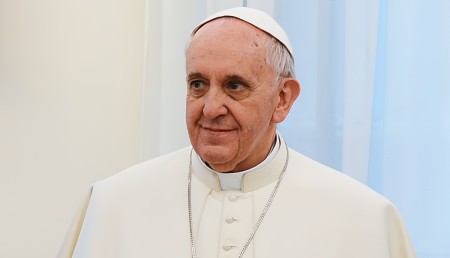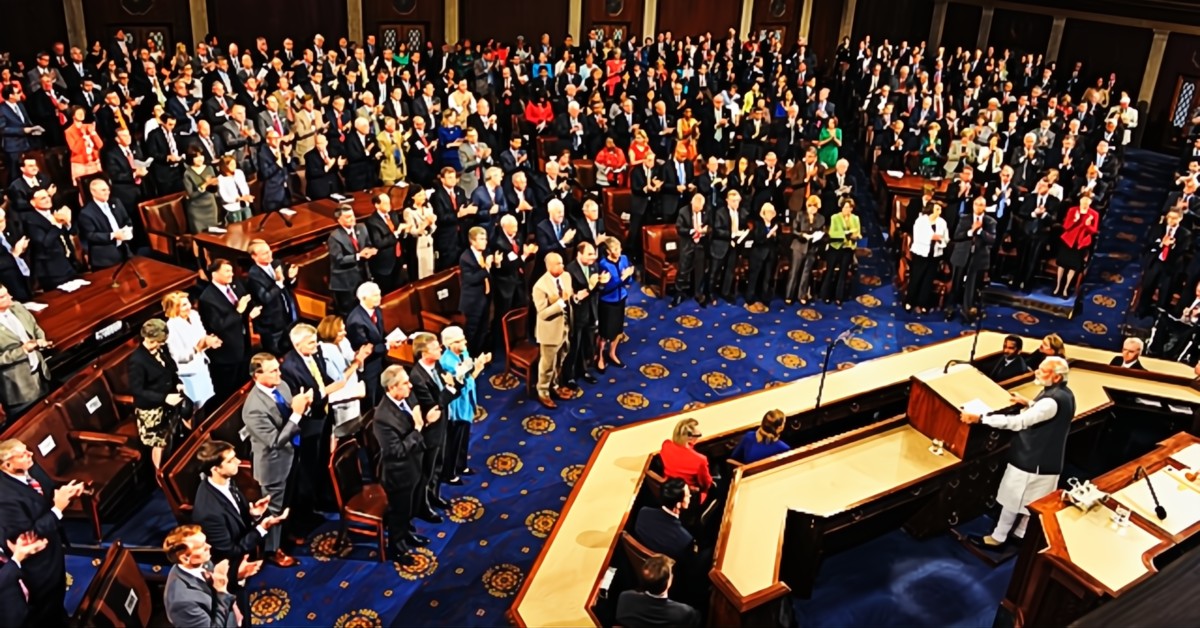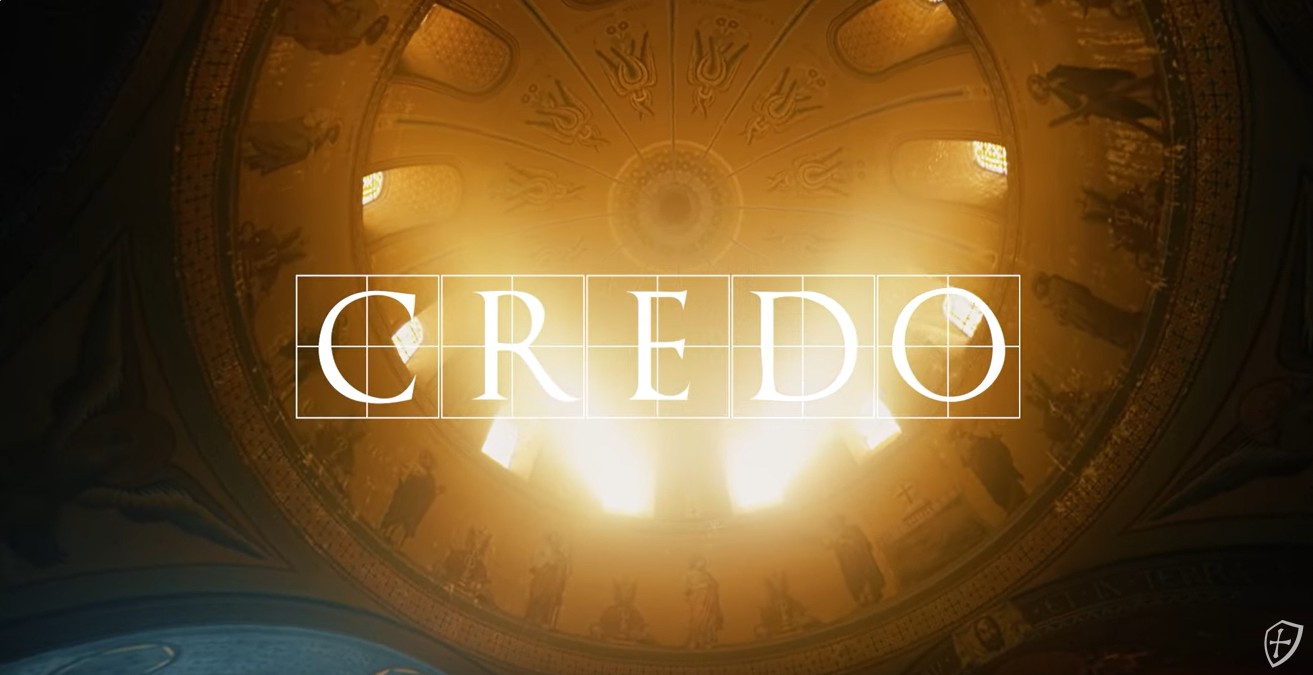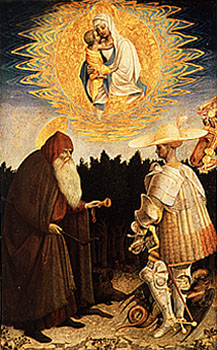On the Importance of the Eucharist and the Word of God
FREE Catholic Classes
The contraposition of Word and Eucharist does not correspond to an authentically Catholic vision of their intimate relationship.
Highlights
Zenit News Agency (www.zenit.org)
11/12/2008 (1 decade ago)
Published in Europe
ROME (Zenit) - Answered by Legionary of Christ Father Edward McNamara, professor of liturgy at the Regina Apostolorum university.
Q: Could you succinctly state the relationship between the importance of the Eucharist versus the Word of God in the liturgy of the Mass? I was on a Eucharistic retreat with a group of Catholics, when the leader of our group said that we as Catholics believe that the Word of God is as important as the Eucharist. I have always been taught that the Eucharist is the source and summit of our faith, but after she said this I did some research into adoration of the Blessed Sacrament and the Word of God, and it seemed that there was more than a little validity to her statement since the "Word was made flesh and dwelt amongst us" ... and God speaks to us though his inspired Word, etc. Please clarify this. -- N.C., Cleveland, Ohio
A: I would like to begin this answer by recalling a conversation I had during my seminary years with an elderly Catholic layman while on vacation in upstate New York. This wise gentleman, of Lithuanian descent, rented canoes in the Adirondacks and often dealt with evangelical Christians who tried to win him over by saying they had the Good Book. He replied that as a Catholic he not only had the Book but moreover frequently met the Author.
Although one might discuss the theological precision of the anecdote, it does reflect a fundamental truth with respect to the different forms in which Christ is present to us. God certainly speaks to us through his inspired Word, and the Church teaches that he is present when the Scriptures are read. This presence, however, as Pope Paul VI teaches in his encyclical "Mysterium Fidei" is a real but transitory presence enduring while the liturgical reading lasts. It is, therefore, not of the same class as the substantial real presence found in the Eucharist.
From another angle we can also consider how Scripture is fulfilled in Eucharistic worship.
"The Word was made flesh and dwelt amongst us" this is the foundation of our faith. However, the same Word who took flesh in Mary's womb, who died, rose and ascended, is the same one who said, "This is my body ... this is my blood," and is thus present body, soul and divinity under the species of bread and wine. In every Eucharistic celebration the entire mystery of Christ from the incarnation to the ascension is truly made present anew, albeit under the veil of sign and symbol.
From this perspective the Eucharist is thus "more important" than Scripture because Scripture's ultimate goal is to lead us to union with Christ through full participation in the Mass. The Mass is a sharing in the worship which the Incarnate Word offers to the Father in the Holy Spirit.
Yet, from a different perspective and precisely in the context of the Mass, the question as to the relative importance of Scripture vis-[-vis the Eucharist is relatively meaningless.
In every Mass we are like the disciples going to Emmaus, except we already know that Christ is present among us. Like them, our hearts should burn as we listen to Moses, the prophets and the New Covenant as they speak about Christ. At the same time we are aware that in the end we will recognize him only in the breaking of bread.
Therefore it is not a question of the superiority of one over the other but of an inseparable interrelationship and ordering of one toward the other. Precisely because Scripture is ordered toward Eucharistic worship, the celebration's external form necessarily follows the road to Emmaus. All the historical evidence available shows us that the celebration of the Word and the Eucharist have always formed a single act of worship. Likewise, Scripture is so intimately intertwined within the fabric of every single prayer that we can say that without Scripture there could be no Catholic liturgy.
Conversely, and from a historical perspective it is also partially true that without liturgy there would be no Scripture, for one of the major criteria for determining which books eventually made it into the biblical canon was whether the book was read in the liturgical assembly.
Therefore the contraposition of Word and Eucharist does not correspond to an authentically Catholic vision of their intimate relationship.
It is true that, historically, Catholics have not been assiduous Bible readers. During the greatest part of the Church's existence books were a luxury few could read and fewer could afford. The lack of direct Bible reading did not mean that there was total biblical illiteracy. Most Christians were imbued with biblical salvation history through church decorations in painting, sculpture and stained glass. The huge reredos enshrining the high altars of many cathedrals harmoniously wove in the stories of Genesis, kings, prophets, Jesus' ancestry and the principal events of the New Testament, while centering everything on the sacrifice of the altar. In this way they provided a visible scriptural background to Catholic worship.
In today's changed circumstances the Church actively encourages all Catholics to possess, read and meditate on the Good Book, while not forgetting to make frequent visits to the Author.
Join the Movement
When you sign up below, you don't just join an email list - you're joining an entire movement for Free world class Catholic education.

-

-
Mysteries of the Rosary
-
St. Faustina Kowalska
-
Litany of the Blessed Virgin Mary
-
Saint of the Day for Wednesday, Oct 4th, 2023
-
Popular Saints
-
St. Francis of Assisi
-
Bible
-
Female / Women Saints
-
7 Morning Prayers you need to get your day started with God
-
Litany of the Blessed Virgin Mary
Pope Francis Suffers Fall: A Look at Papal Health and Succession
-

The Erosion of Civility in Congressional Hearings: A Call for Professional Decorum
-

Bishop Strickland and Others Defend Apostolic Tradition in New Documentary on the Church's Enduring ...
-
At Least 25 Dead as Wildfires Continue to Rage Across Los Angeles, Arson Investigations Underway
-
Australian Woman Charged with Torture After Exploiting Child for Donations
Daily Catholic
 Daily Readings for Friday, January 17, 2025
Daily Readings for Friday, January 17, 2025 St. Anthony the Abbot: Saint of the Day for Friday, January 17, 2025
St. Anthony the Abbot: Saint of the Day for Friday, January 17, 2025 Prayer for a Blessing on the New Year: Prayer of the Day for Tuesday, December 31, 2024
Prayer for a Blessing on the New Year: Prayer of the Day for Tuesday, December 31, 2024- Daily Readings for Thursday, January 16, 2025
- St. Fursey: Saint of the Day for Thursday, January 16, 2025
- St. Theresa of the Child Jesus: Prayer of the Day for Monday, December 30, 2024
![]()
Copyright 2024 Catholic Online. All materials contained on this site, whether written, audible or visual are the exclusive property of Catholic Online and are protected under U.S. and International copyright laws, © Copyright 2024 Catholic Online. Any unauthorized use, without prior written consent of Catholic Online is strictly forbidden and prohibited.
Catholic Online is a Project of Your Catholic Voice Foundation, a Not-for-Profit Corporation. Your Catholic Voice Foundation has been granted a recognition of tax exemption under Section 501(c)(3) of the Internal Revenue Code. Federal Tax Identification Number: 81-0596847. Your gift is tax-deductible as allowed by law.







 Daily Readings for Friday, January 17, 2025
Daily Readings for Friday, January 17, 2025 St. Anthony the Abbot: Saint of the Day for Friday, January 17, 2025
St. Anthony the Abbot: Saint of the Day for Friday, January 17, 2025 Prayer for a Blessing on the New Year: Prayer of the Day for Tuesday, December 31, 2024
Prayer for a Blessing on the New Year: Prayer of the Day for Tuesday, December 31, 2024

